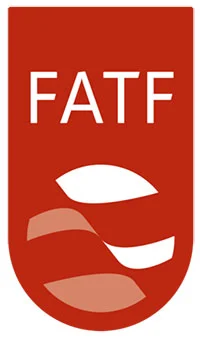Iran's new move on anti money laundering
Iran recently decided to accelerate anti money laundering measures in the country to avoid the grave impact of FATF Black listing norms . Taking into consideration the current status of Iran as a blacklisted country under FATF norms , Iran’s Supreme Leader Ayatollah Ali Khamenei recently approved the revival of bills that for years were the subject of political infighting between the country’s moderates hardliners regarding anti money laundering measures. President Hassan Rouhani recently requested that the Expediency Council – Iran’s arbitration body – be tasked with reviewing the legislation, which would bring the country into compliance with the Financial Action Task Force (FATF). The FATF is a Paris-based global watchdog on black money , terror financing and anti-money laundering. Currently, Iran and North Korea are the only two countries on the FATF blacklist. Passing the bills on anti money laundering in Iran is now need of the hour and is crucial for the establishment of international banking ties, notably with Europe.
If Iran remains on the FATF blacklist :
- It will exceedingly limit Iran's business and financial transactions,
- increase the cost of transactions, and
- affect business growth, employment and economic growth”
In February, the Paris-based FATF lifted the suspension of its counter-measures on Iran that was introduced in 2016. The organisation said Iran will remain on its blacklist until it ratifies the two remaining bills. Until Iran implements the measures required to address the deficiencies identified with respect to countering terrorism-financing in the Action Plan, the FATF will remain concerned with the terrorist financing risk emanating from Iran and the threat this poses to the international financial system.
To comply with the FATF, Iran had to finalise four pieces of legislation related to boosting financial reporting and compliance with international standards to increase transparency.
The Financial Action Task Force (FATF)—an intergovernmental, technocratic anti-money laundering (AML) and counter-terrorist financing (CFT) body—on February 21, 2020 voted to re-impose counter-measures on Iran for Tehran’s lack of progress in passing AML and CFT legislation. The move, taken shortly after Iran’s Expediency Council quashed legislation passed by the parliament, was the culmination of more than four years of efforts by the FATF to push Tehran to pass basic AML/CFT legislation in the wake of the 2015 Joint Comprehensive Plan of Action (JCPOA) in an effort to get itself out of the small club of nations that willfully flaunt international financial norms. Iran’s only partner-in-crime, as it were, is none other than North Korea—a government that is essentially a global money-laundering syndicate.
The decision to impose counter-measures by the Paris-based body signals something of an end to the group’s patience with Iran, especially by the European Union, after Tehran failed to follow through on the action plan it agreed upon with the FATF to address its deficiencies. As a technical matter, the FATF’s decision is unassailable. Iran has not signed onto required international agreements, has no credible AML/CFT laws more than two years after its action plan expired, and flagrantly finances terrorist groups, the Gazan militant group Hamas and Lebanese Hezbollah chief among them. These deficiencies are despite years of the FATF giving Tehran more chances to address its issues than any other nation would have gotten. Make no mistake, this is a self-inflicted wound for the Islamic Republic.
Today, the Financial Action Task Force (FATF) followed through on its October 2019 commitment to re-impose due-diligence countermeasures on Iran if Tehran failed – as it has since 2016 – to complete a mutually agreed-upon action plan to address its well-known money laundering and terrorism finance concerns. Re-imposition of these measures further isolates Iran financially, making its desired reintegration into the global financial system more difficult.
FATF, the global anti-money laundering (AML) standard-setting body, now under the rotating presidency of China, had temporarily suspended the countermeasures since 2016, instead giving Iran more time to meet FATF’s standards. Even during the suspension of countermeasures, though, Iran remained on the blacklist. Today, however, countries – including Russia, China, and the E3 – that had previously supported extending the deadline for Iran, understood that Iran did not require more time but had made a strategic decision to defy FATF’s concerns.
FATF’s action sends a clear message to bank and corporate risk managers and others responsible for ensuring their institutions are not exposed to Iran’s illicit activities that they must reassess ties to Iran’s entire financial sector. Given Iran’s willful failure to uphold AML and terror finance standards, doing business with any Iranian bank, insurance company, or other financial institution, whether sanctioned or not, comes with heavy risks and high costs.
FATF identified six items Iran still has not completed that it “should fully address,” including adequately criminalizing terrorist financing; identifying and freezing terrorist assets in line with UN Security Council resolutions; demonstrating how authorities are identifying and sanctioning unlicensed money/value-transfer service providers; and ensuring that financial institutions verify that wire transfers contain complete originator and beneficiary information.
FATF also required Iran to ratify and implement specified AML legislation. Iran’s Majlis, or parliament, had previously passed such legislation. However, the Guardian Council, which screens prospective laws for fidelity to the regime’s Islamist ideology, rejected the bills. The bills then moved to the Expediency Council, the arbitration body that settles disputes between the parliament and the Guardian Council, which has taken no action.








